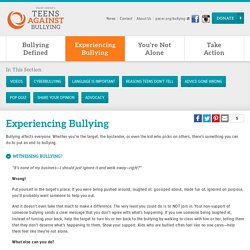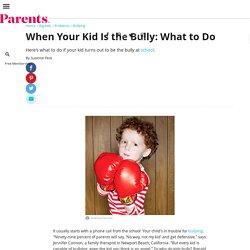

13 Tips for Monitoring Kids’ Social Media. The American Academy of Pediatrics (AAP) recently released findings from a comprehensive study on the impact social media has on kids and families.

Although there are real benefits to kids using sites like Facebook, including increased communication, access to information and help in developing a sense of self, there can be serious downsides to all this online sharing too. Social networking is on the rise, and the study found that 22 percent of teenagers log onto their favorite social media sites more than 10 times a day, and that 75 percent own cell phones. This level of engagement online increases the risks of cyberbullying, “Facebook depression” (a new phenomenon where “de-friending” and online bullying lead to symptoms of depression), exposure to inappropriate content, and sexting.
Just as we prepare our kids for life in the real world, we should prepare them for life in the online world. Read on for tips that every parent should keep in mind. Relational Aggression and Why Kids Engage In It. Relational aggression is an insidious type of bullying that often goes unnoticed by parents and educators.

Consequently, teens and tweens that engage in relational aggression are often able to bully, control and manipulate others all under the radar of adults. In fact, some kids are so skilled at this type of bullying that no one would ever suspect them of hurting others. Sometimes relational aggression is referred to as emotional bullying or the mean girl phenomenon and involves social manipulation such as: excluding people from a groupspreading rumorsbreaking confidences or sharing secretsrecruiting others to dislike a target In general, girls tend to be more relationally aggressive than boys, especially during fifth grade through eighth grade.
Common Signs of Relational Aggression While the tactics used in relational aggression vary from one bully to another, here are some common behaviors to look out for: Why Do Girls Engage in Relational Aggression? Experiencing Bullying. Drama.

Bullying. Teasing. Harassment. No matter what you call it, it hurts. If you’re pushed, hit, or your things are ripped off or trashed, it can hurt physically. So seriously, what can you do? You can take back control, but you don’t have to do it on your own. 1. “When I walk into the classroom, all the girls start whispering with each other and laughing.” Ever feel like this only happens to you? 2. “Self-Advocate? Being a “self-advocate” means speaking up for yourself, telling people what you need, and taking action. In the plan: Kids and Social Media. Cultivating Empathy. Bullying and Relational Aggression Tips for Parents of Teen Girls. A Guide to Online Safety - Social Networking. 3 Types of Bullying. 10 Ways to Be an Upstander. Every single day we each have the opportunity to make our schools (and our world!)

A better place. Putting an end to bullying is everyone's responsibility. When we work together and stand strong against bullying, we are creating communities that are stronger, safer, and more supportive - places where every person is valued for who they are. Here's how YOU can help: Bystander Revolution - Take The Power Out Of Bullying. When YOUR Kid is the Bully: What to Do. Andrew Parsons It usually starts with a phone call from the school: Your child's in trouble for bullying.

"Ninety-nine percent of parents will say, 'No way, not my kid' and get defensive," says Jennifer Cannon, a family therapist in Newport Beach, California. "But every kid is capable of bullying, even the kid you think is an angel. " So why do kids bully? Ronald Mah, a family therapist in San Leandro, California and author of Getting Beyond Bullying and Exclusion PreK-5, describes two distinct reasons why kids bully. Just take a deep breath, gather details about what exactly transpired, and let the school know that you want to work together for a positive outcome. What to Do If Your Child Is Bullying Others Acknowledge the Behavior Sit down with your child, speak in a calm, firm tone, and ask him what happened and why he behaved a certain way.
How to Deal With School Bullies Focus on Consequences Help your child understand that she is accountable for her actions. Empathy Can Change the World.